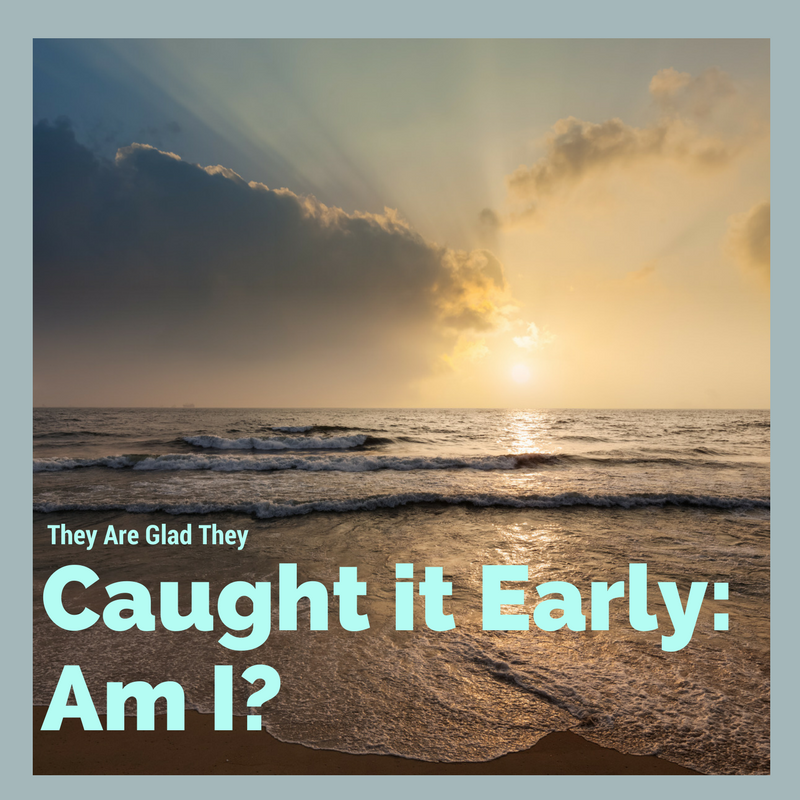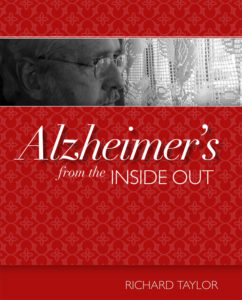
An essay by Richard Taylor, Ph.D.
I have talked with dozens of people in their 30s and 40s who have been diagnosed with early-onset (defined as anyone under the age 65 who is diagnosed), early-stage (the first of a three-stage description of the disease) Alzheimer’s disease. I was 58 when I was officially diagnosed. After hearing the diagnosis, I cried every day for three weeks. My neurologist told me that 95% of the people he diagnoses with Alzheimer’s are not ever tested. The patients, most of whom are in their mid-to-late 70s, would not be able to understand the instructions, let alone answer the questions in a reliable manner. I was tested for a year, and I understood everything that was going on. I still do. Right now, I just forget a lot.
I now feel a sense of accomplishment when an hour goes by and I am not made aware of my illness by someone correcting me or asking me a question I cannot answer. However, soon there is old Dr. Alzheimer with his pitcher of ice water to throw in my face. He reminds me it was the illness that caused me not to lock the front door at home, or to leave the dog in the yard for almost a day, or to forget to do this or that. I now almost never stop being aware of the illness. What was an occasional disruptor became a bother and is now a constant companion and reminder of my journey down the road less traveled.
When I was first diagnosed, I joined a support group, and all of the members were older than I. Most of them denied they had the disease because—I believe—they could not conceptualize it. Since they didn’t understand it, why should they believe others who told them they had something they couldn’t see, feel, or conceptualize? The group leader encouraged us to tell each other how we felt. Most all of them felt okay. They were a little irritated that they could not drive or handle money, but for them life was mostly on track.
For those of us who “caught” it relatively early in life, and in whom it was diagnosed early in the progression of the disease, we know what is going on. We can still entertain meta perspectives on our own behaviors, our minds, and ourselves.
Although I am aware of the fact that I have Alzheimer’s disease, this awareness doesn’t always help me to make the most of my situation, or to ask for or accept the help that I sometimes need.
My neurologist may be happy he made the diagnosis early on in the course of the disease. I am not so sure it was such a blessing.
This post was adapted from Alzheimer’s from the Inside Out by Richard Taylor, Ph.D., Copyright © 2007 by Health Professions Press, Inc. All rights reserved.
Read the book!
Alzheimer’s from the Inside Out
By Richard Taylor, Ph.D.
Copyright © 2007 by Health Professions Press, Inc.
As a former psychologist diagnosed with Alzheimer’s, expert Richard Taylor provides unique insights on experiencing and coping with Alzheimer’s disease.

